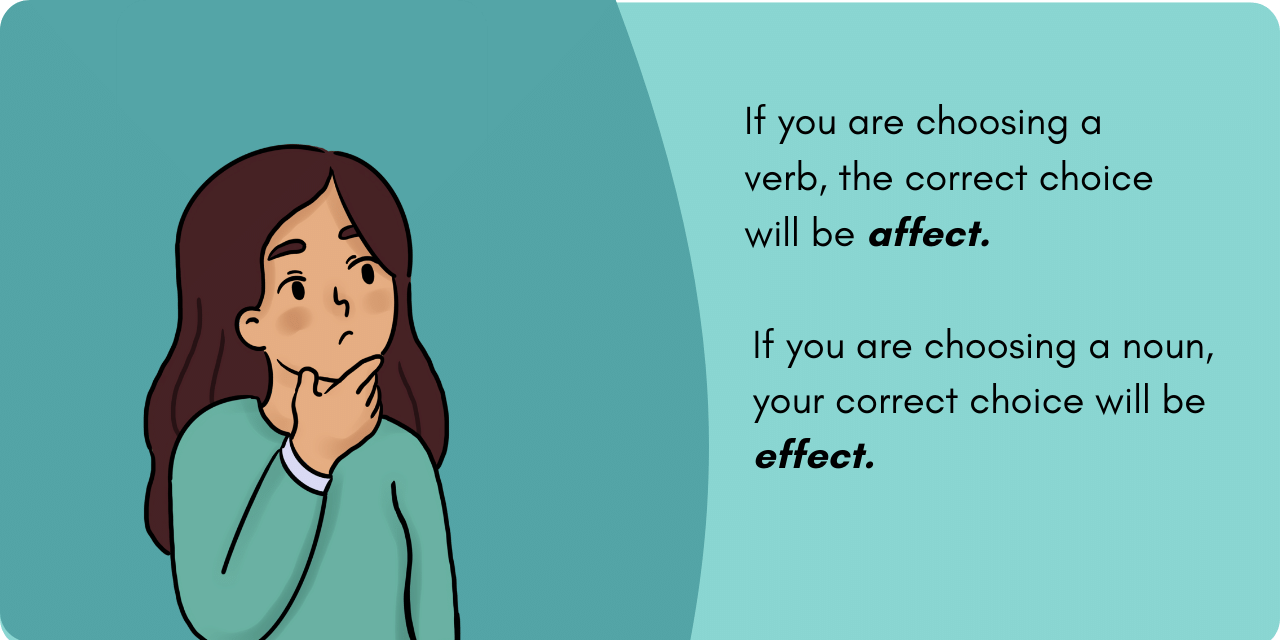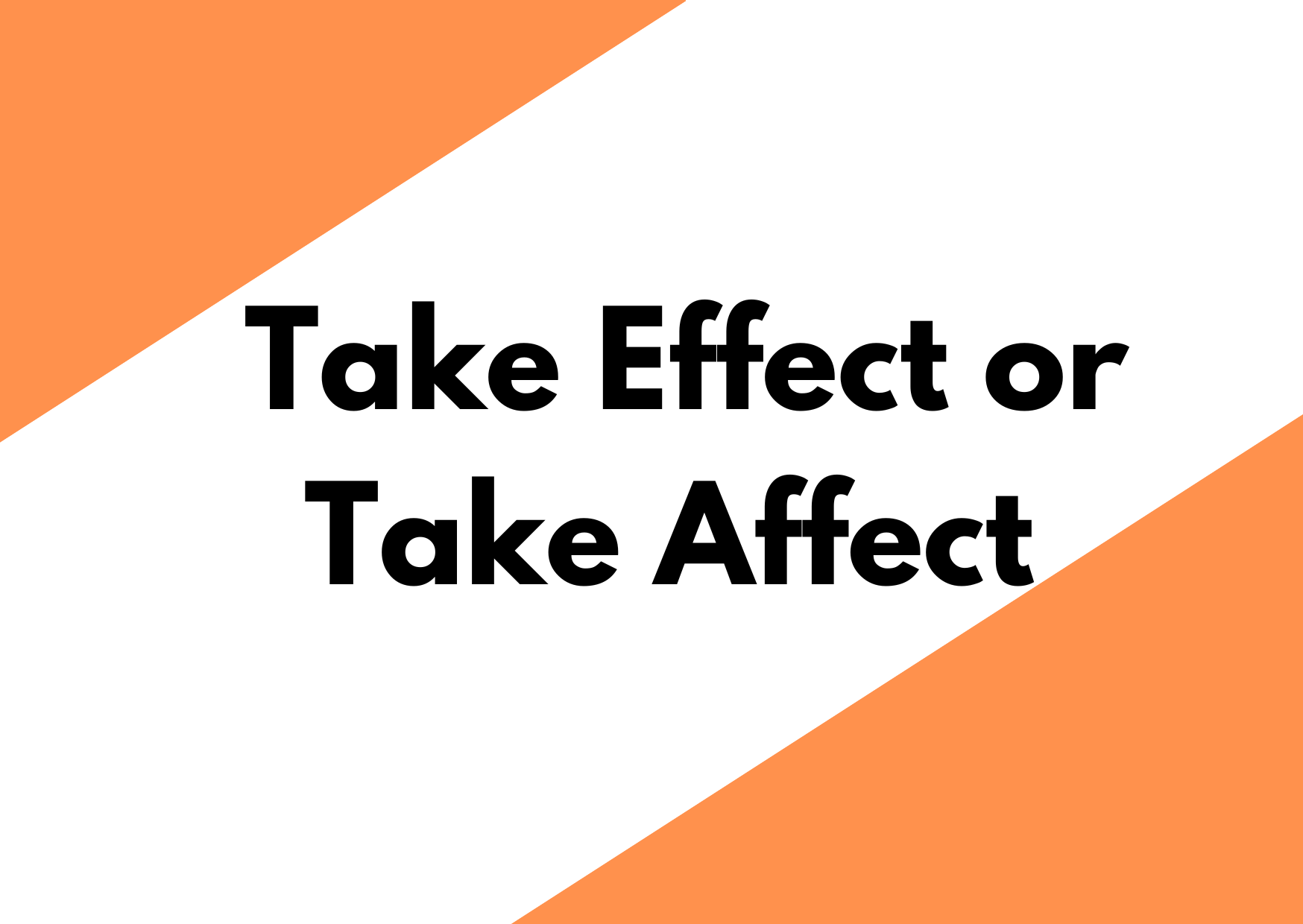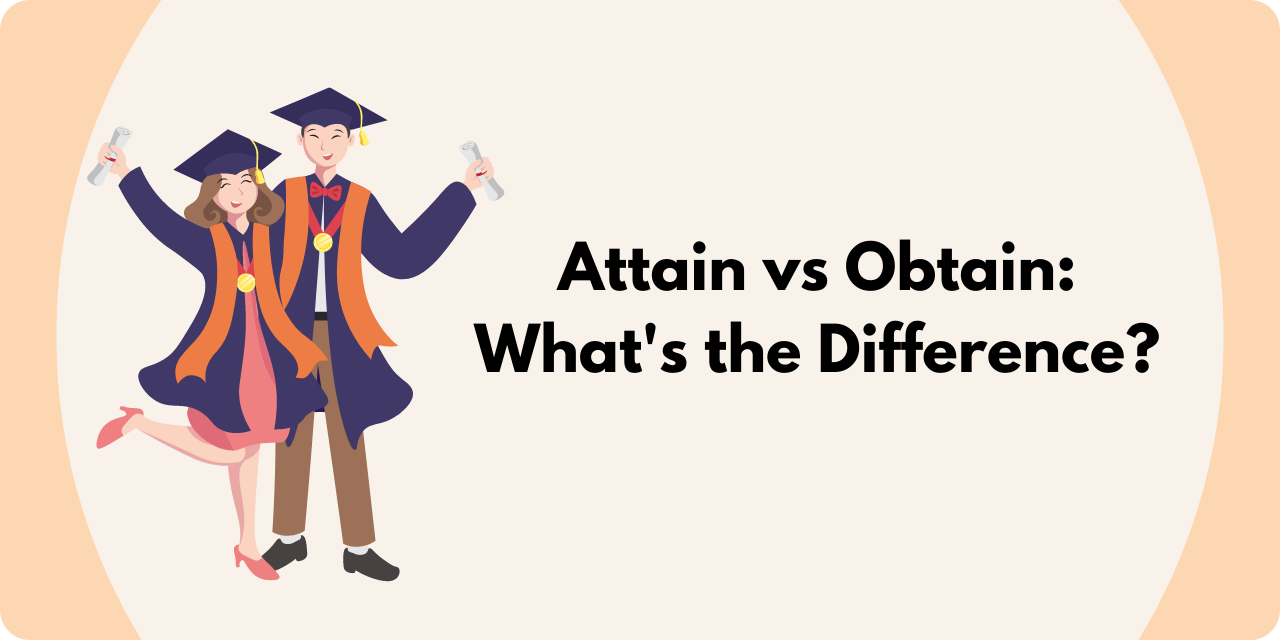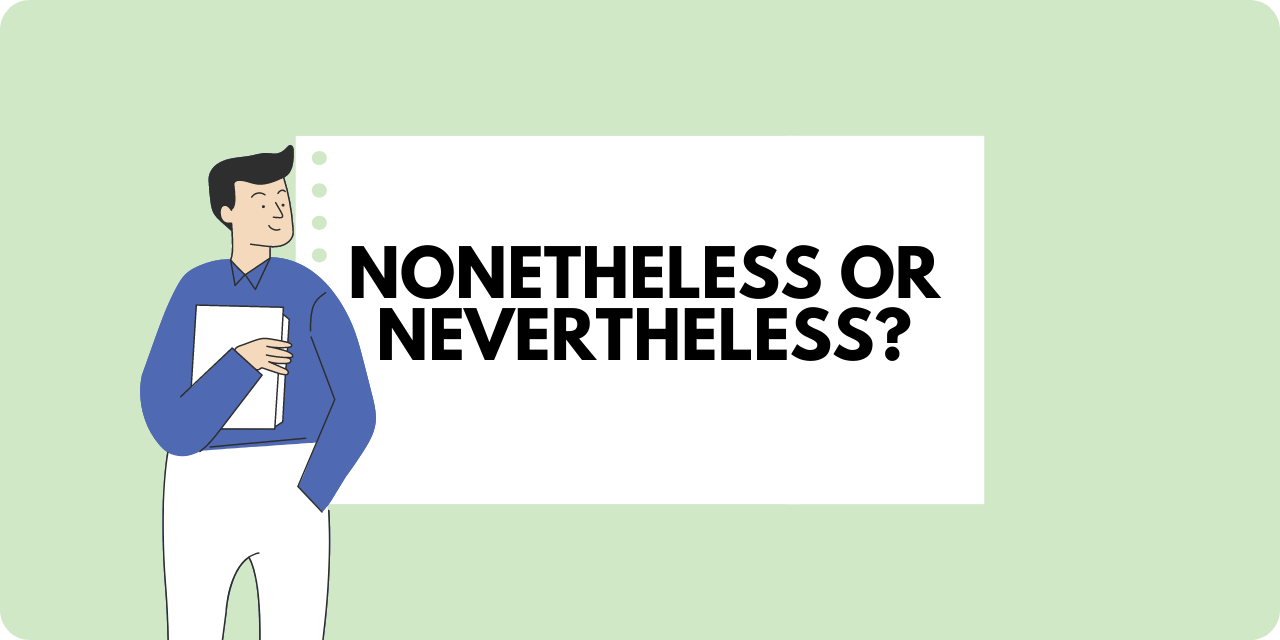People in business writing classes have been asking for ways to know whether affect or effect is correct. Here are my best tips for choosing the appropriate word.

How To Choose Effect Or Affect
If you are choosing a noun, your correct choice will be effect 99 percent of the time.
- The medicine had no effect on her condition.
- In the lab it is difficult to duplicate the effect of the weather on the siding.
- This change will have no effect on your retirement funds.
- This setting softens the harsh effect of the ceiling lights.
- His mood always has an effect on mine.
If it is not easy for you to distinguish between a noun (a person, place, thing, or idea) and a verb (a word that generally shows action), here is a tip: If you can insert the word bad or good in front of the word and it makes sense, it is a noun.
Applying the bad or good tip to choosing affect or effect, if you can insert bad or good in front of the word, 99 percent of the time your correct choice will be effect. Examples:
- The medicine had no [good] effect on her condition.
- In the lab it is difficult to duplicate the [bad] effect of the weather on the siding.
- This change will have no [bad] effect on your retirement funds.
- This setting softens the [bad] effect of the ceiling lights.
- His mood always has a [good] effect on mine.
Compare these sentences, in which neither bad nor good makes sense before the word without restructuring the sentence. That means you need affect, the verb:
- The medicine does not affect her condition.
- The weather affects the siding.
- This change will not affect your retirement funds.
- The ceiling lights affect the feeling of the room.
- His mood always affects mine.
If your word ends in -ed or –ing, it is probably a verb. That verb will nearly always be affected or affecting.
However, occasionally you will need effect, the verb. You will only use that form when you mean “to bring about”:
- The new CEO plans to effect change–that is, to bring about change.
- She has been hired to effect a culture shift–that is, to bring about a culture shift.
Quiz
Review the examples above. Then try this test. Each blank needs affect or effect. Answers appear at the bottom of the post.
- 1. How will this change ________ me?
- 2. Do you believe his personal life ________ed his work?
- 3. What _______ does the temperature have on product integrity?
- 4. Stress in the workplace can negatively ________ safety.
- 5. Of course, his smoking has an _________ on his health.
- 6. The team’s cliquishness did not ________ him.
- 7. These proposals may ________ our benefit plans.
- 8. Do you think the new VP will ________ changes right away?
- 9. Can you demonstrate the ________s of your social media programs on sales?
- 10. The rainy weather has not had an __________ on our exercise plans.
- 11. How is her illness ________ ing her children?
- 12. The chemical spray had no apparent ________ on the root weevils.
Before you compare your answers with the key below, see whether you have six affect forms and six effect forms, as I do.
Do your answers match these?
1. affect 2. affect(ed) 3. effect 4. affect 5. effect 6. affect 7. affect 8. effect (bring about) 9. effect(s) 10. effect 11. affect(ing) 12. effect
Take Affect or Take Effect

We often see the affect vs. effect dilemma present itself in the phrase “take effect,” sometimes erroneously written as “take affect.” Remember, Since “effect” is the noun and the direct cause, one would “take effect,” not “affect.” You cannot take a descriptive word.
Here is a quick example of its use:
It is too soon to predict how much effect the central bank’s action will have on the euro zone economy. The change will take effect in October. – The New York Times
As a bonus, here is a video you can watch for the more visual-oriented folks:






